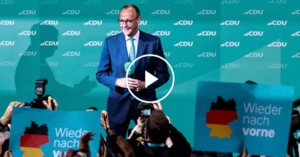Germany has long been considered the EU’s essential nation—its most significant, affluent, and impactful power. However, in recent years, Berlin has been widely seen as absent from EU affairs, hindered by internal disputes within its coalition government leading to indecisiveness. Olaf Scholz’s relationship with Emmanuel Macron has been lukewarm, impacting the Franco-German engine that traditionally drove the EU. The Polish-German relationship also faces strains over European air defense and historical issues. Friedrich Merz, Germany’s next chancellor, aims to restore Germany’s leadership in Europe, emphasizing the urgent global situation and the need for a functioning government. The continent looks to Germany for increased military aid to Ukraine, with Merz promising to send long-range missiles to Kyiv. He faces demands to send troops, a notion Scholz has deemed premature. There’s a consensus among mainstream parties to support Ukraine, but funding discussions could paralyze such support. Merz’s government will likely face calls to increase defense spending and potentially reform Germany’s debt brake, with mixed signals on eurobonds. While expected to improve relations with EU leaders like Tusk and Macron, Merz faces a significant challenge with Donald Trump, who has disrupted traditional German foreign policy.
Source: https://www.theguardian.com/world/2025/feb/24/restoration-of-germany-as-bold-eu-leader







